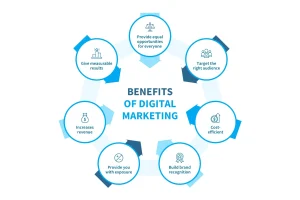Data Science vs Data Analytics
In today’s data-driven world, two terms often create confusion — data science and data analytics. While both deal with data and insights, they serve different purposes and require different skill sets. Understanding Data Science vs Data Analytics is essential for anyone looking to build a career in the growing field of analytics.
What is Data Science?
Data science is the process of collecting, processing, analyzing, and interpreting large volumes of data to solve complex problems. It combines elements of statistics, computer science, and domain expertise to create predictive models and data-driven strategies.
Key aspects of data science:
- Uses machine learning and AI to make predictions
- Works with structured and unstructured data
- Involves programming languages like Python and R
- Applies advanced statistical techniques
What is Data Analytics?
Data analytics focuses on examining existing datasets to identify patterns, trends, and useful information. It’s more about interpreting historical data to guide business decisions, rather than building predictive models.
Key aspects of data analytics:
- Focuses on descriptive and diagnostic analysis
- Works mainly with structured data
- Uses tools like Excel, SQL, and BI platforms
- Helps in improving operational efficiency
Data Science vs Data Analytics: Core Differences
Here’s how the two fields differ:
| Feature | Data Science | Data Analytics |
|---|---|---|
| Goal | Build predictive models and discover insights | Analyze existing data for decision-making |
| Data Type | Structured & unstructured | Mostly structured |
| Tools | Python, R, Hadoop, TensorFlow | Excel, SQL, Tableau, Power BI |
| Scope | Broad, includes AI & machine learning | Focused on reporting & insights |
Business Analytics: A Related Field
Business analytics is a specialized branch of analytics that focuses on applying data analysis techniques directly to business problems. It uses statistical tools and models to improve processes, reduce costs, and enhance decision-making.
Big Data Analytics: Handling Massive Datasets
Big data analytics deals with extremely large and complex datasets that cannot be handled by traditional methods. It involves using advanced tools and technologies like Hadoop, Spark, and cloud computing to process and analyze huge volumes of data in real time.
Python for Data Science
One of the most important skills for a career in data science is Python for data science. Python is widely used for:
- Data cleaning and preprocessing
- Statistical analysis
- Machine learning model development
- Data visualization with libraries like Matplotlib and Seaborn
Career Opportunities in Data Science and Data Analytics
Both fields offer excellent career prospects:
Data Science Roles:
- Data Scientist
- Machine Learning Engineer
- AI Researcher
Data Analytics Roles:
- Data Analyst
- Business Analyst
- Reporting Specialist
Consulation
When it comes to Data Science vs Data Analytics, the main difference lies in their scope and purpose. Data science focuses on building models and predicting future outcomes, while data analytics focuses on analyzing past data for insights. Both fields are essential in today’s data-driven world, and careers in business analytics, big data analytics, and Python for data science are growing rapidly.

